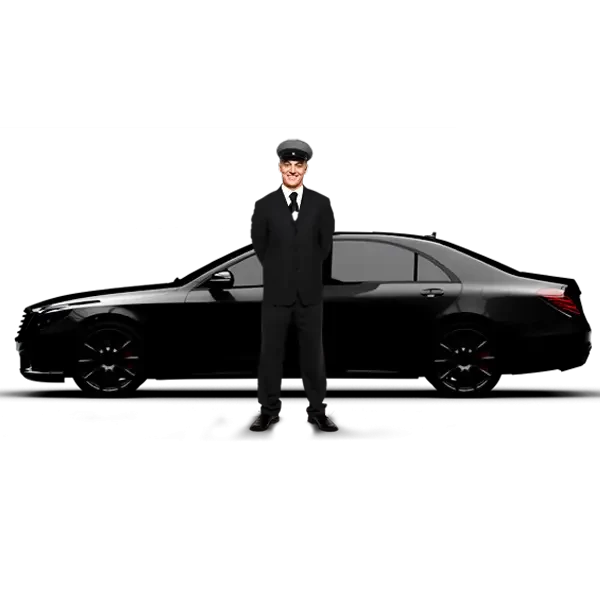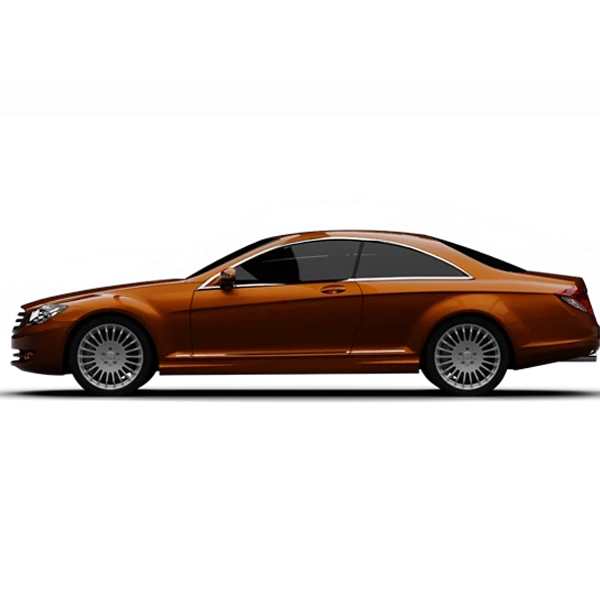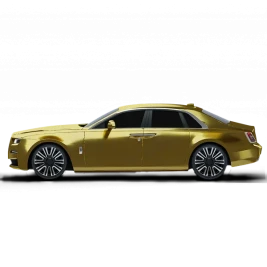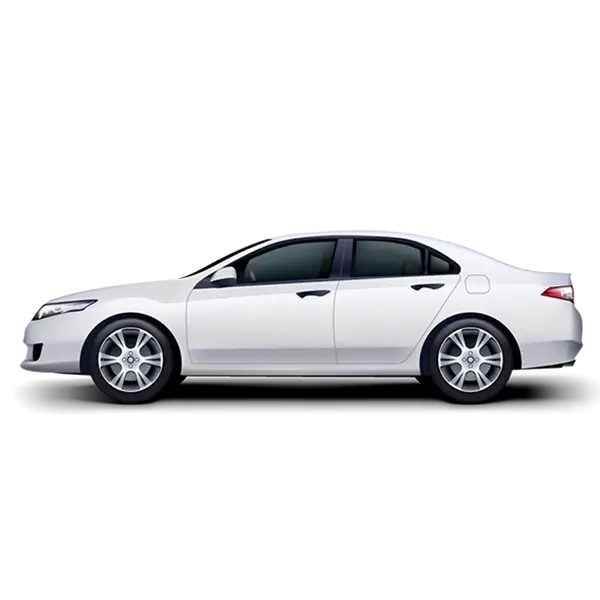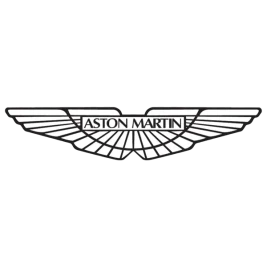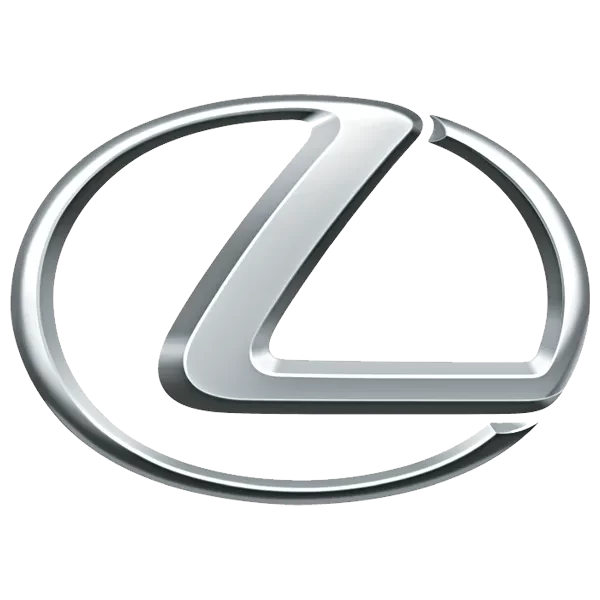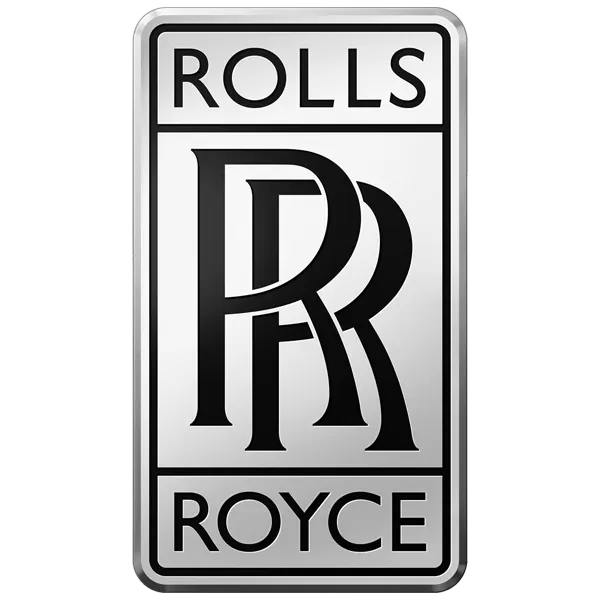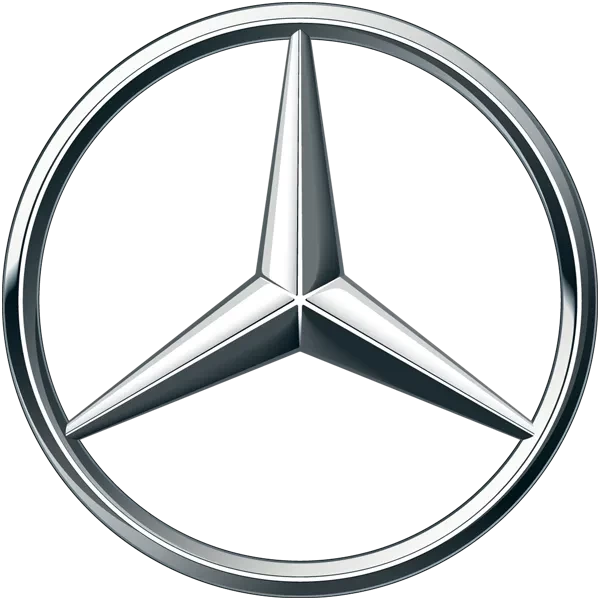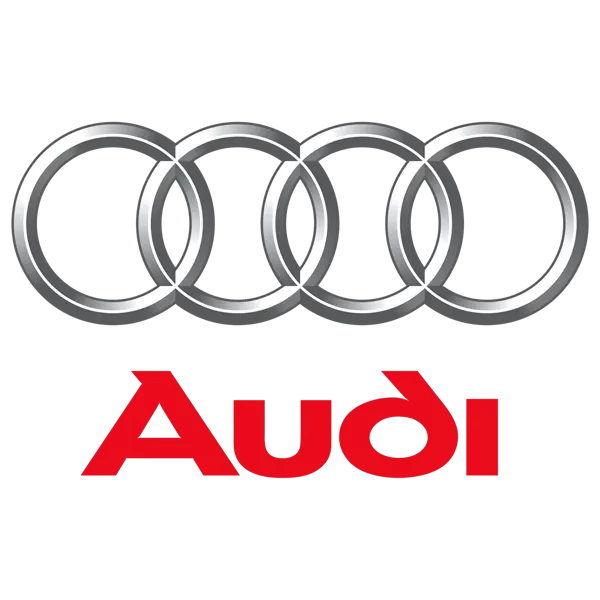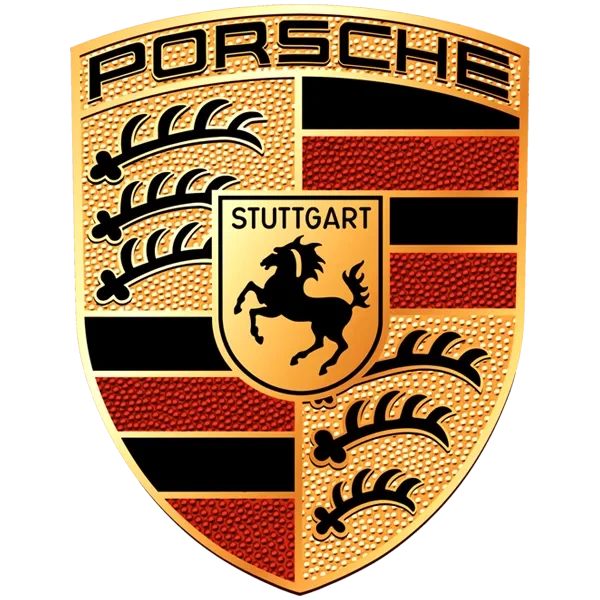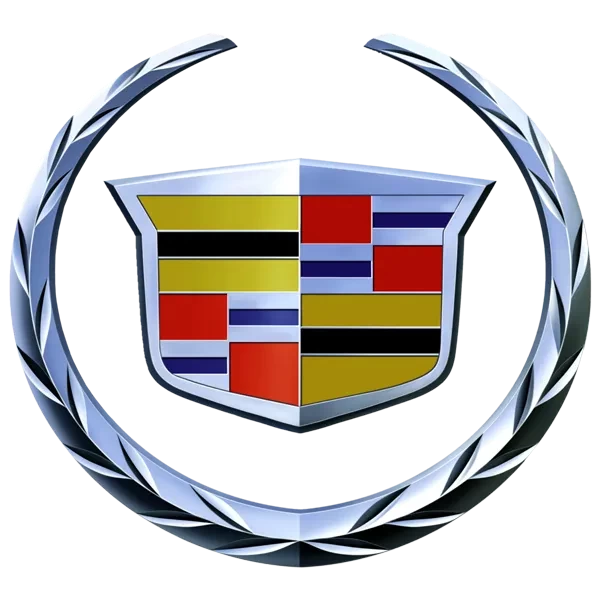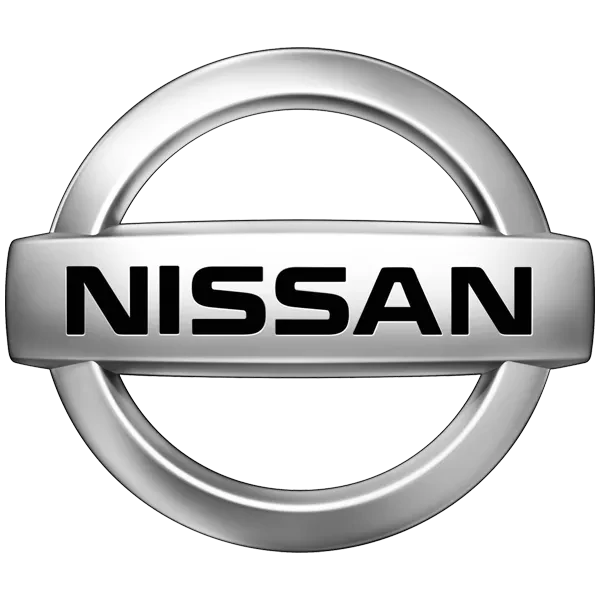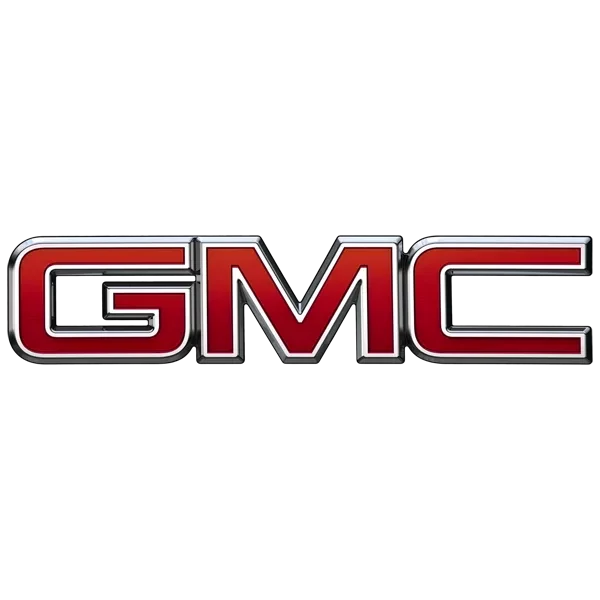15 Most Common Volkswagen Problems and Solutions
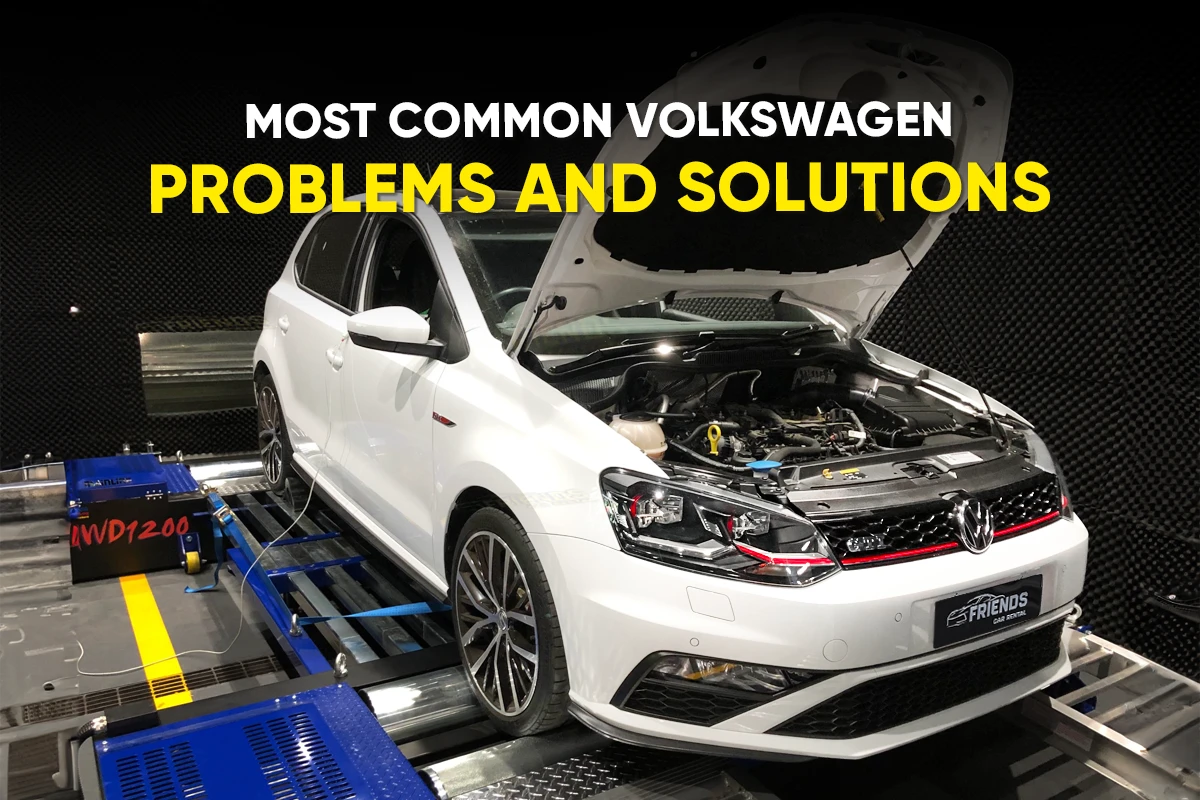
Looking for the most common Volkswagen problems and solutions? This comprehensive guide details the 15 most frequent Volkswagen car issues and their practical fixes, empowering current & future owners to maintain their cars with confidence.
Volkswagen, a symbol of German engineering, boasts a global reputation for quality, performance, and style. However, like any complex machine, even these well-built cars are not immune to issues. Understanding the existing Volkswagen car problems and their solutions is crucial for a hassle-free ownership experience.
Learn about these 15 Volkswagen problems to avoid unexpected setbacks on the road and ensure a seamless and confident driving experience. Dive in & stay ahead of the curve.
15 Common Volkswagen Issues and Fixes: Overview
Now, let's explore the most frequent Volkswagen car problems and their practical solutions:
Timing Chain/Tensioner Failures: Proactive tensioner replacement; Full engine tear-down and rebuild.
Excessive Oil Consumption: PCV valve replacement; Engine rebuild with new piston rings; Regular oil top-ups.
Carbon Buildup: Professional walnut blasting service; Chemical intake cleaning.
Turbocharger Failures: Turbocharger unit replacement; Wastegate actuator repair.
High-Pressure Fuel Pump (HPFP) Failure: HPFP replacement; Full fuel system flush in cases of contamination.
DSG Transmission Issues: Mechatronic unit replacement; Clutch pack replacement; Transmission fluid service.
Transmission Overheating: Fluid and filter change; Transmission cooler inspection; Allowing the vehicle to cool down.
Water Pump and Coolant Leaks: Water pump and thermostat housing replacement; Coolant system flush.
Faulty Sensors and Wiring: Diagnostic scan and sensor replacement; Wiring harness repair.
Infotainment System Glitches: Software updates, Hard reset, Module replacement.
Power Window Failures: Window regulator replacement; Motor replacement.
Brake System Wiring Harness Defects: Official recall service at a dealer.
Airbag Component Defects: Official recall service at a dealer.
Sunroof Leaks: Clearing clogged drainage channels; Replacing seals or disconnected tubes.
Worn Suspension Components: Replacement of bushings, ball joints, or control arms; Wheel alignment.
Related Article: Most Common Jeep Problems and Solutions
Engine and Drivetrain Issues
1. Timing Chain/Tensioner Failures
What Happens: The timing chain tensioner in certain Volkswagen engines, particularly the 1.8T and 2.0T TSI variants, is prone to sudden failure. When it fails, the chain can become loose and skip a tooth on the gear. It can snap entirely in a catastrophic failure. This results in the valves and pistons colliding, causing severe internal engine damage.
Affected Models: Golf (2015-2025), GTI (2015-2025), Jetta (2015-2025), Passat (2015-2025), Tiguan (2015-2025).
Symptoms:
A loud, rattling noise, particularly on cold startup.
The engine may have a "no-start" condition.
Activation of the check engine light on the dashboard.
In severe cases, a complete and sudden loss of engine power, accompanied by loud noises from the engine bay.
Common Causes:
A flawed design in the tensioner's ratchet mechanism.
Loss of hydraulic pressure that holds the tensioner in place.
General wear and tear, accelerated by missed oil changes.
Impact:
Heightened accident risks from sudden power loss on the road.
Extremely costly repairs, often requiring a full engine rebuild or replacement.
Diminished vehicle reliability and owner satisfaction.
Solutions:
Proactively replace the older, problematic tensioner with the updated version.
Perform a diagnostic check at a local service center to assess chain stretch.
If damage has occurred, a complete engine teardown is required to replace bent valves and repair the cylinder head.
Estimated Repair Cost:
Preventative Replacement: AED 2,200-4,000
Engine Damage Repair: AED 14,700-22,000+
Prevention Tips:
Follow the manufacturer's oil change schedule strictly and use the correct synthetic oil.
Listen for any rattling noises, especially on cold starts.
Consider a proactive replacement of the tensioner on affected models.
2. Excessive Oil Consumption
What Happens: Certain Volkswagen engines, most notably the 2.0L TSI, consume an unusually high amount of engine oil. Unlike a leak, the oil is being burned inside the combustion chamber. This is often linked to a design in the piston rings that creates a less-than-perfect seal between the piston and the cylinder wall.
Affected Models: Tiguan (2015-2025), Passat (2015-2025), Jetta (2015-2025), Golf (2015-2025), GTI (2015-2025).
Symptoms:
The engine oil warning light frequently illuminates on the dashboard.
Blue or gray smoke from the exhaust pipe, particularly during startup or under heavy acceleration.
A noticeable smell of burning oil.
The need to add oil to the engine at a frequency much higher than the recommended service intervals.
Common Causes:
A design flaw in the piston rings, which lack the necessary tension to create a proper seal.
Worn or damaged piston rings and valve seals.
A malfunctioning PCV (Positive Crankcase Ventilation) valve.
Impact:
Constant need for costly oil top-ups between service intervals.
Increased risk of severe engine damage or failure if the oil level is not maintained.
Deposits of oil residue can form carbon buildup on internal engine components, causing additional issues.
Solutions:
Piston Ring Replacement: The most effective, albeit expensive, solution is to replace the faulty piston rings with an updated design.
PCV Valve Replacement: A much cheaper and simpler fix that can solve the problem if it's the root cause.
Engine Flush: In less severe cases, a professional engine flush may help to clear carbon and sludge buildup.
Estimated Repair Cost:
PCV Valve Replacement: AED 1,100-2,600
Piston Ring Replacement/Engine Rebuild: AED 11,000-25,000+
Prevention Tips:
Follow the manufacturer's oil change recommendations strictly and only use the correct specification of oil.
Regularly check the oil level using the dipstick.
Avoid aggressive driving and high RPMs for extended periods, as this can increase oil consumption.
Related Article: Most Common Cadillac Problems and Solutions
3. Carbon Buildup
What Happens: Carbon buildup is a common issue for modern Volkswagen engines, particularly those with a direct injection fuel system (TSI and FSI). Oil vapors and other particles collect on the back of the intake valves, baking into hard carbon deposits. This buildup restricts airflow to the engine, which can significantly affect performance.
Affected Models: Tiguan (2015-2025), Golf (2015-2025), GTI (2015-2025), Passat (2015-2025), Jetta (2015-2025).
Symptoms:
Rough or unstable idling.
Engine misfires, especially under load.
A noticeable decrease in engine power and responsiveness.
Reduced fuel efficiency.
Activation of the check engine light.
Common Causes:
The direct injection fuel system design does not allow fuel to wash over the intake valves.
The use of low-quality or incorrect engine oil.
Excessive idling and short-distance driving.
Impact:
Progressive loss of engine power and responsiveness.
Increased fuel consumption over time.
Can lead to more serious issues if not addressed, such as damage to catalytic converters or valve components.
Solutions:
Walnut Blasting: The most common and effective solution is a professional "walnut blasting" service, where crushed walnut shells are blasted at high pressure to clean the valves.
Chemical Cleaners: While less effective for severe buildup, certain intake cleaning chemicals can be used to help reduce minor carbon deposits.
Estimated Repair Cost:
Walnut Blasting: AED 1,500-3,700
Chemical Cleaning Service: AED 370-900
Prevention Tips:
Use high-quality, manufacturer-recommended synthetic oil and adhere to a strict oil change schedule.
Drive the vehicle at highway speeds for extended periods to get the engine hot enough to help burn off some deposits.
Avoid excessive idling and short trips.
4. Turbocharger Failures
What Happens: While generally reliable, the turbochargers on some Volkswagen models can fail due to a variety of factors. A turbocharger failure involves a malfunction of the unit itself, often due to an issue with the wastegate actuator or the bearings that allow the impeller to spin. This leads to a loss of boost pressure and a significant reduction in engine power.
Affected Models: Golf (2015-2025), GTI (2015-2025), Tiguan (2015-2025), Passat (2015-2025), Jetta (2015-2025).
Symptoms:
A noticeable loss of power and acceleration.
A whining or high-pitched sound coming from the engine bay.
Blue or white smoke from the exhaust indicates oil is leaking into the turbine housing.
The engine enters "limp mode," where performance is severely limited.
Common Causes:
A failing wastegate actuator.
Contaminated or low engine oil can cause the turbo bearings to fail.
Over-revving the engine or aggressive driving.
A leak in the turbocharger's seals.
Impact:
Severe loss of engine power, making the vehicle unsafe to drive.
Can cause collateral damage to the engine if oil leaks or metal fragments enter the system.
A very expensive component to replace.
Solutions:
Turbocharger Replacement: In most cases, the entire turbocharger unit needs to be replaced.
Wastegate Actuator Repair: If the issue is isolated to the actuator, it may be possible to repair or replace it separately, which is less expensive.
Estimated Repair Cost:
Turbo Replacement: AED 7,400-14,700+
Wastegate Actuator Repair: AED 1,500-3,700
Prevention Tips:
Use a high-quality, fully synthetic oil and change it at or before recommended intervals.
Allow the engine to idle for 30-60 seconds before shutting it off after a long drive to allow the turbo to cool down.
Avoid frequent, hard acceleration from a stop.
Related Article: Most Common Kia Problems and Solutions
5. High-Pressure Fuel Pump (HPFP) Failure
What Happens: The HPFP is a critical component in direct injection engines that provides the high fuel pressure required for combustion. A failure of this pump can result in a sudden loss of engine power, misfires, or a no-start condition. The failure can be a result of the pump's internal components wearing out or a lack of proper lubrication.
Affected Models: GTI (2015-2025), Jetta (2015-2025), Passat (2015-2025), Tiguan (2015-2025), Golf (2015-2025).
Symptoms:
The engine hesitates, stutters, or stalls.
A noticeable loss of power and rough idling.
The engine may go into "limp mode."
A loud ticking or rattling sound from the engine bay.
Activation of the check engine light.
Common Causes:
The use of contaminated or low-quality fuel.
The pump's internal components wear out over time.
A lack of proper lubrication can cause internal damage to the pump.
Impact:
An unpredictable and sudden loss of engine power can be dangerous while driving.
If left unaddressed, it can lead to collateral damage, such as metal shavings from the pump contaminating the entire fuel system.
Solutions:
Pump Replacement: In most cases, the entire HPFP needs to be replaced. If there is metal contamination, the entire fuel system, including the fuel tank, lines, and injectors, may need to be replaced as well.
Filter Replacement: While not a solution for a failed pump, regular fuel filter changes can help prevent pump failure.
Estimated Repair Cost:
HPFP Replacement Only: AED 2,200-4,400
HPFP with Fuel System Contamination: AED 7,400-22,000+
Prevention Tips:
Use high-quality fuel from reputable sources.
Avoid running the fuel tank close to empty, as this can cause the pump to work harder and potentially draw in debris.
6. DSG Transmission Issues
What Happens: Volkswagen's Direct-Shift Gearbox (DSG) is known for its quick shifts, but it is also susceptible to problems. These issues often stem from the mechatronic unit, which is the control center for the transmission, or from worn clutches. This can lead to rough and delayed shifting, or a complete loss of power.
Affected Models: Golf (2015-2025), GTI (2015-2025), Passat (2015-2025), Tiguan (2015-2025), Jetta (2015-2025).
Symptoms:
Jerky or rough gear changes, especially at low speeds.
A delay or hesitation when shifting gears.
A rattling or grinding noise from the transmission.
A complete loss of drive, where the car refuses to move.
The transmission warning light illuminates on the dashboard.
Common Causes:
A malfunctioning mechatronic unit, which controls the shifting process.
Worn clutch packs, which are a wear-and-tear item.
Incorrect transmission fluid levels or lack of proper fluid changes.
Impact:
Significant reduction in driving comfort and performance.
In some cases, a sudden and dangerous loss of power while driving.
Extremely high repair costs, often on par with a full engine rebuild.
Solutions:
Fluid and Filter Change: In some minor cases, a proper fluid change can help.
Mechatronic Unit Replacement: This is the most common and expensive fix, often costing thousands of dirhams.
Clutch Pack Replacement: Another costly repair that is required when the clutches wear out.
Estimated Repair Cost:
Fluid Change: AED 730-1,500
Mechatronic Unit Replacement: AED 7,400-14,700
Clutch Pack Replacement: AED 4,000-8,000
Prevention Tips:
Follow the manufacturer’s recommended service schedule for DSG fluid and filter changes.
Avoid aggressive driving, such as frequent hard acceleration from a stop.
Related Article: Most Common Fiat Problems and Solutions
7. Transmission Overheating
What Happens: The DSG transmission is prone to overheating in certain driving conditions, particularly in high-traffic or hot climates. This can occur when the transmission fluid, which also acts as a coolant, gets too hot. The car’s onboard computer will detect this and often place the vehicle into limp mode to protect the transmission from damage.
Affected Models: Golf (2015-2025), GTI (2015-2025), Tiguan (2015-2025), Passat (2015-2025), Jetta (2015-2025).
Symptoms:
A warning light for transmission overheating appears on the dashboard.
A sudden loss of power and responsiveness as the car enters limp mode.
Jerky or delayed shifting, as the transmission attempts to protect itself.
A burning smell from the transmission fluid.
Common Causes:
Driving for extended periods in heavy, slow-moving traffic.
High ambient temperatures, especially in hot climates.
Low or old transmission fluid.
A malfunctioning transmission fluid cooler.
Impact:
The vehicle becomes unsafe to drive at its full capacity.
Repeated overheating can cause long-term damage to the transmission's internal components.
Can lead to a full transmission failure if not addressed.
Solutions:
Stop and Let the Transmission Cool Down: The simplest solution is to pull over to a safe location and let the car sit and cool down.
Fluid and Filter Change: An overdue fluid change can often contribute to this issue.
Transmission Cooler Inspection: A mechanic may need to inspect the transmission fluid cooler for any blockages or malfunctions.
Estimated Repair Cost:
Transmission Fluid Flush: AED 730-1,500
Transmission Cooler Replacement: AED 1,800-4,000
Prevention Tips:
Adhere strictly to the transmission fluid service schedule.
In heavy traffic, use the manual mode to avoid unnecessary shifting.
In hot climates, avoid long periods of bumper-to-bumper traffic when possible.
Cooling and Electrical Systems
8. Water Pump and Coolant Leaks
What Happens: The water pump and thermostat housing on post-2015 Volkswagen models are frequent points of failure. The components are often made of plastic, which can become brittle and crack due to repeated exposure to high temperatures. This leads to coolant leaks, causing the engine to lose its primary cooling fluid and run the risk of overheating.
Affected Models: Golf (2015-2025), GTI (2015-2025), Tiguan (2015-2025), Passat (2015-2025), Jetta (2015-2025).
Symptoms:
The coolant level drops quickly, requiring frequent top-ups.
A sweet smell, which is characteristic of burning coolant, coming from the engine bay.
A puddle of coolant (often pink or purple) under the vehicle when parked.
The engine temperature warning light on the dashboard, signaling a high risk of overheating.
Common Causes:
The plastic materials used for the water pump and thermostat housing.
General wear and tear and repeated exposure to high temperatures.
In some cases, improper coolant mixtures.
Impact:
Puts the vehicle at high risk of a catastrophic overheating event.
A sudden failure can cause the engine to shut down while driving.
Can lead to warped cylinder heads or a cracked engine block if not caught in time.
Solutions:
Component Replacement: The solution is to replace the faulty water pump and/or thermostat housing. It is often recommended to replace both at the same time, even if only one is leaking.
Coolant System Flush: After replacement, a full flush and refill of the coolant system is necessary.
Estimated Repair Cost:
Water Pump Replacement: AED 1,500-4,000
Thermostat Housing Replacement: AED 730-2,600
Prevention Tips:
Have your cooling system inspected regularly for any signs of leaks.
Use only the Volkswagen-approved coolant specification.
Related Article: Most Common Acura Problems and Solutions
9. Faulty Sensors and Wiring
What Happens: Modern Volkswagen vehicles are heavily reliant on a network of sensors and a complex wiring harness. Failures can occur when a sensor stops sending a correct signal to the car’s computer or when a wire becomes frayed or shorted. This can cause a range of issues from warning lights to operational problems.
Affected Models: Golf (2015-2025), GTI (2015-2025), Tiguan (2015-2025), Passat (2015-2025), Jetta (2015-2025).
Symptoms:
The check engine light, ABS light, or airbag light illuminates on the dashboard.
The car misfires or stalls, which may be caused by a bad oxygen or crankshaft position sensor.
The car’s computer goes into limp mode without a clear cause.
Intermittent or non-functional features, such as the horn or cruise control.
Common Causes:
Standard wear and tear over time.
Exposure to extreme heat or moisture.
A defective component or a flaw in the wiring harness.
Impact:
Can be a nuisance, but can also pose a serious safety risk if a sensor for a critical system (like braking) fails.
Diagnosing these issues can be time-consuming and expensive.
Solutions:
Diagnostic Scan: A mechanic must perform a full diagnostic scan to pinpoint the exact sensor or wiring fault.
Component Replacement: The faulty sensor or wire must be replaced.
Estimated Repair Cost:
Diagnostic Scan: AED 370-730
Sensor Replacement: AED 730-1,800
Wiring Repair: AED 1,100+
Prevention Tips:
Ensure any service work is done by a qualified technician who can handle complex vehicle electronics.
Avoid using aftermarket electrical accessories that could put a strain on the vehicle’s wiring.
10. Infotainment System Glitches
What Happens: The infotainment system in post-2015 Volkswagen models is known for a range of software and hardware issues. Drivers report the touchscreen freezing, a complete loss of audio, or problems with Bluetooth and Apple CarPlay/Android Auto connectivity.
Affected Models: Golf (2015-2025), Tiguan (2015-2025), Jetta (2015-2025), Passat (2015-2025).
Symptoms:
The touchscreen becomes unresponsive or freezes.
The audio cuts out completely or a high-pitched noise is emitted from the speakers.
Inconsistent Bluetooth pairing or dropped phone calls.
The navigation system may lose its signal or stop working.
Common Causes:
Software bugs or a need for a software update.
A faulty control module or wiring harness.
The car’s battery voltage drops, which can cause the system to malfunction.
Impact:
An inconvenience that detracts from the driving experience.
Can create a distraction for the driver, compromising safety.
The cost of a full replacement can be very high.
Solutions:
Software Update: Often, a trip to the dealer for a software update can resolve many of these issues.
Hard Reset: A simple trick of holding down the power button can sometimes force a hard reset.
Module Replacement: If the problem persists, the entire infotainment module may need to be replaced.
Estimated Repair Cost:
Software Update: AED 0-550 (if under warranty or part of a recall).
Module Replacement: AED 2,200-7,400
Prevention Tips:
Keep the infotainment system updated with the latest software.
Avoid plugging in unofficial USB accessories.
Related Article: Most Common Subaru Problems and Solutions
11. Power Window Failures
What Happens: The power window regulators in many Volkswagen models are a common failure point. The regulator is the component that allows the window to move up and down. A failure typically involves a broken plastic clip or a worn cable, causing the window to either get stuck or fall down into the door.
Affected Models: Jetta (2015-2025), Golf (2015-2025), Passat (2015-2025), Tiguan (2015-2025).
Symptoms:
The window will not move up or down when the button is pressed.
A grinding or snapping sound is heard from inside the door panel.
The window falls down into the door and will not stay up.
The window moves very slowly or at an angle.
Common Causes:
A plastic clip or component in the regulator mechanism breaking.
A frayed or snapped cable.
General wear and tear over time.
Impact:
An inconvenience that can compromise the vehicle’s security.
Can expose the interior of the car to the elements.
Solutions:
Regulator Replacement: The most common solution is to replace the entire power window regulator assembly.
Motor Replacement: In some cases, the motor itself may be the problem and can be replaced separately.
Estimated Repair Cost:
Regulator Replacement: AED 730-1,800
Motor Replacement: AED 730-1,500
Prevention Tips:
Avoid putting unnecessary strain on the windows.
Address any issues quickly before they worsen.
12. Brake System Wiring Harness Defects
What Happens: A significant safety issue, a defect in the wiring harness of certain Volkswagen models, can cause the emergency braking system to activate unexpectedly. This happens when the vehicle’s computer receives a faulty signal, interpreting it as an imminent collision and engaging the brakes without any input from the driver.
Affected Models: Atlas (2018-2025), Tiguan (2018-2025), Jetta (2019-2025), Taos (2022-2025).
Symptoms:
The emergency braking system activates unexpectedly while driving, with no obstacles in the path.
Dashboard warning lights for the braking system and other safety features appear.
Common Causes:
A defect in the wiring harness itself which leads to a faulty electrical signal.
Water or debris gets into the wiring, causing a short circuit.
Impact:
Creates an extremely dangerous situation that can lead to a rear-end collision or other accidents.
Causes significant fear and anxiety for the driver.
Has been the subject of class-action lawsuits.
Solutions:
Dealer Repair: The official solution is to have the affected wiring harness replaced at an authorized Volkswagen dealer, typically at no cost to the owner under a recall or warranty extension.
Estimated Repair Cost:
Replacement: AED 0 (usually covered by a recall)
Prevention Tips:
Owners of affected models should have the recall work performed immediately.
Do not attempt to repair this issue yourself, as it is a critical safety system.
Related Article: Most Common Bentley Problems and Solutions
13. Airbag Component Defects
What Happens: Certain Volkswagen models have been included in major safety recalls due to defective airbag components, primarily from the Takata recall. These defects can cause the airbag inflator to rupture upon deployment, sending metal shrapnel into the cabin.
Affected Models: Golf (2015-2025), Passat (2015-2025), Jetta (2015-2025), GTI (2015-2025), Tiguan (2015-2025).
Symptoms:
There are no symptoms until a crash occurs and the airbag deploys.
The airbag warning light may illuminate on the dashboard, which can be an indicator of a defect.
Common Causes:
The chemical composition of the airbag inflator.
Defects in the airbag's electrical components or wiring.
Impact:
Poses a very high risk of serious injury or death in the event of a crash.
A known and dangerous safety risk that has led to major recalls.
Solutions:
Official Recall Service: The only solution is to have the vehicle taken to an authorized dealer for the official recall service, where the airbag inflator is replaced at no cost.
Estimated Repair Cost:
Replacement: AED 0 (covered by the official safety recall)
Prevention Tips:
Immediately check if your vehicle is part of an official airbag recall campaign.
Do not attempt to disable or work on the airbag system yourself.
Body and Suspension
14. Sunroof Leaks
What Happens: Volkswagen’s panoramic sunroofs are a known source of leaks. The problem usually stems from a blockage in the drainage channels, which are designed to divert water away from the car’s interior. When they get clogged with debris, water can build up and leak into the cabin, often causing significant damage to the headliner, electronics, and upholstery.
Affected Models: Atlas (2018-2025), Tiguan (2015-2025), Golf (2015-2025), Jetta (2015-2025).
Symptoms:
Water dripped from the headliner around the sunroof.
The presence of a musty or mildew-like smell inside the car.
Stains on the headliner or pillar upholstery.
Water pooling on the floor of the vehicle.
Common Causes:
Blocked drainage channels, typically from debris, dirt, or leaves.
The drainage tubes are becoming disconnected.
A faulty sunroof seal.
Impact:
Can lead to extensive and costly damage to the car's interior and electronics.
Can cause rust and mold to form inside the vehicle.
Solutions:
Unclogging Drains: A mechanic can unclog the drainage channels using compressed air or a flexible wire.
Component Replacement: If the problem is due to a faulty seal or a disconnected tube, those components must be replaced.
Estimated Repair Cost:
Unclogging Drains: AED 370-1,100
Component Replacement: AED 1,100-3,700
Prevention Tips:
Regularly check the sunroof drains for debris and clear them out with low-pressure air.
Keep the sunroof seals clean to ensure a tight seal.
Related Article: Most Common Range Rover Problems and Solutions
15. Worn Suspension Components
What Happens: Premature wear of suspension components is a common issue for many Volkswagen models. Parts such as control arm bushings, ball joints, and tie rods can wear out sooner than expected due to normal driving, especially on rough roads. This can lead to a less comfortable ride and compromised handling.
Affected Models: Golf (2015-2025), GTI (2015-2025), Jetta (2015-2025), Tiguan (2015-2025), Passat (2015-2025).
Symptoms:
A clunking or rattling sound coming from the front of the vehicle.
The car feels less stable or "floaty" at high speeds.
Uneven tire wear.
The steering wheel may feel loose or vibrate.
Common Causes:
Standard wear and tear.
Aggressive driving and driving on roads with many potholes or bumps.
The material of the original components wears out prematurely.
Impact:
A less comfortable and stable driving experience.
Can lead to more serious issues, such as a loss of control, if the components fail.
Solutions:
Component Replacement: The solution is to replace the worn components, which often include the bushings, ball joints, and/or control arms.
Wheel Alignment: After any suspension work, a professional wheel alignment is necessary to ensure proper handling and to prevent future issues.
Estimated Repair Cost:
Suspension Bushings: AED 730-2,600
Control Arm/Ball Joint: AED 1,100-3,700
Prevention Tips:
Drive carefully on rough roads and avoid potholes.
Have your suspension inspected during every service to catch any wear early.
Final Thoughts
Understanding common Volkswagen issues is the definition of a seasoned owner. This guide empowers you to explore the complexities of your Volkswagen with confidence. It enables you to maintain its German engineering and ensure peak performance.
The Volkswagen-specific problems detailed above—from engine drivetrain issues to the nuances of sunroof leaks—are your first line of defense. By staying alert to early warning signs, you not only save on long-term repairs but also uphold your car's reputation for reliability. A commitment to scheduled service and the use of quality parts is paramount, especially in the demanding climate of the GCC.
Written by: FriendsCarRental
Published at: Sun, Sep 28, 2025 5:34 PM
Leave a Reply
Your email address will not be published. Required fields are marked *
Car Rental in Dubai
AED 2500
DAY
AED 0
MONTH
-
 SUV
SUV -
 4 Doors
4 Doors -
 5 Seats
5 Seats
- 1 Day Rental Available
- Deposit: Not Required
- Insurance Included
AED 5500
DAY
AED 0
MONTH
-
 Sports
Sports -
 2 Doors
2 Doors -
 2 Seats
2 Seats
- 1 Day Rental Available
- Deposit: Not Required
- Insurance Included
AED 1200
DAY
AED 0
MONTH
-
 SUV
SUV -
 4 Doors
4 Doors -
 5 Seats
5 Seats
- 1 Day Rental Available
- Deposit: Not Required
- Insurance Included
AED 1600
DAY
AED 0
MONTH
-
 SUV
SUV -
 4 Doors
4 Doors -
 5 Seats
5 Seats
- 1 Day Rental Available
- Deposit: Not Required
- Insurance Included
AED 1500
DAY
AED 28500
MONTH
-
 SUV
SUV -
 4 Doors
4 Doors -
 5 Seats
5 Seats
- 1 Day Rental Available
- Deposit: Not Required
- Insurance Included

 عربي
عربي
 English
English
 Français
Français
 Русский
Русский
 中国人
中国人
 Nederlands
Nederlands
 Española
Española
 Türkçe
Türkçe
 Italiana
Italiana



